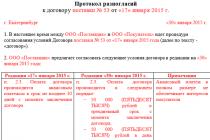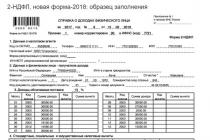Debt collection is not just about litigation. At certain stages important role plays pre-trial work, which can bring significant efficiency.
Dear readers! The article talks about typical ways to solve legal issues, but each case is individual. If you want to know how solve exactly your problem- contact a consultant:
APPLICATIONS AND CALLS ARE ACCEPTED 24/7 and 7 days a week.
It's fast and IS FREE!
In some cases, this option seems to be more profitable, as it allows you to receive funds before the start of court proceedings which can save some costs.
General points
Debt collection is carried out in several stages. Conventionally, the process can be divided into:
Pre-trial recovery can have a positive result. After receiving the claim, the debtor decides to pay off the debt or fulfill the obligation.
In the absence of a response from the debtor, the debt can be transferred to third parties (assignment of the right to claim) or transferred for execution to the collection department (if the creditor is a legal entity).
Definitions
Required documents
The main document on the basis of which the forced collection of debt is carried out is a claim, for which the following documents will be required:
These documents may be attached to the claim, or simply a link to them.
The legislative framework
Enforced recovery is carried out on the basis of the Code of Civil Procedure and the Code of Arbitration Procedure, depending on who are the subjects of the dispute.
Disputes between entrepreneurs are considered by arbitration, and between individuals - by courts of general jurisdiction.
Compulsory execution of judicial acts is carried out by the bailiff service on the basis of the Federal Law "On Enforcement Proceedings".
Depending on the nature of the dispute, various legal acts. Civil Code Russian Federation, the Family Code, as well as many federal laws and by-laws.
Features of the procedure
Pre-trial recovery is carried out until the filing of a statement of claim with the court, after which the stage of trial begins.
Essence up judicial recovery– the fastest possible resolution of the dispute through the impact on the debtor.
Basically, the creditor influences through conversations, calls, as well as sending a claim, which indicates the consequences for the debtor.
The debt can also be sold to a third party under an assignment agreement. This approach requires special steps.
The debtor must be notified of the fact of the transfer of the debt, he must be given a period to file his objection. Otherwise, the assignment of the right to claim will be considered invalid.
Collection of information about the borrower
Lender, pending pre-trial settlement seeks to obtain as much information about the debtor as possible.
This is due to the need for further recovery if the obligation is not fulfilled voluntarily.
Information can be obtained:
- From documents provided by the debtor himself.
- Through social networks and the Internet in general.
- Through friends and relatives, as well as from the employer.
In any case, the information must be obtained legally in compliance with the Federal Law "On Personal Data".
Drafting a claim
The receipt claim must contain the following information:
- Name of the parties to the dispute.
- An indication of the circumstances on the basis of which the dispute arose (conclusion of an agreement, for example).
- Indication of other important factors(payment of part of the debt and so on).
- Debt calculation.
- An indication of the consequences of non-fulfillment of an obligation (filing a lawsuit, increasing costs, and so on).
- Date and signature.


Under what conditions does it apply
The pre-trial procedure is mandatory in some cases, if it is expressly established by law (upon termination of the contract) or in the text of the contract.
Otherwise, the creditor has the right to immediately apply to the court. In some cases, the pre-trial procedure has significant effectiveness.
Video: pre-trial debt collection
Pre-trial settlement is applied in completely different directions. for example, when collecting utility bills, accounts receivable, loans and so on.
For legal entities
Disputes between legal entities should most often be carried out in compliance with the claim procedure.
Samo statement of claim is sent to the parties to the dispute independently, and is not transferred to the court. Otherwise, the claim will not be accepted.
For individuals
Compliance with pre-trial order for individuals less often required. But it can be significant.
If the pre-trial procedure is mandatory, then it will be necessary to attach a document confirming its implementation to the claim.
For individual entrepreneurs (IP)
The requirements for IP are identical to those for legal entities if the dispute concerns entrepreneurial activity. Compliance with the pre-trial order will have the same character.
Reimbursement of loan debt
Banks most often seek to resolve the dispute precisely before judicial order, since filing a lawsuit in court means additional costs and not the fact that in the future they can actually be recovered from the debtor.
Banks have relevant departments that specialize in pre-trial settlement.
In addition, lawyers prepare claims, indicating in them all the necessary circumstances. "Hopeless", according to banks, loans can be sold to collection agencies.
It is the bank inspector who decides which of the debtors can be transferred to third parties for work, and who else can fulfill the obligation.
Far from all loans “reach” the stage of judicial recovery, as banks prefer to use other methods of influence.
Debtor's actions
At the stage of pre-trial settlement, the debtor has the right to protect his rights and legitimate interests. First of all, it concerns the answer to the claim.
He has the right to submit his calculation to the department of pre-trial collection of the creditor, if he does not agree with the creditor, to nominate him counterclaim(for example, about termination of the contract).
The debtor has the right to fully agree with the creditor's demand and fulfill the obligation.
If he does not have such an actual opportunity, for example, due to lack of financial resources, then he may try to petition the creditor for a deferment or installment plan of payments, for restructuring.
What is a pre-trial collection department
A pre-trial collection department exists in almost every credit or loan organization, for example, in banks, MFIs, credit cooperatives, pawn shops and so on.
The essence of this department is to ensure that debtors fulfill their obligations before the creditor goes to court.
Specialists conduct conversations with debtors, send claims to them, make calls and visits, and carry out other activities aimed at fulfilling obligations to creditors.
If there is no such department in the organization, then most often debts are transferred for execution third parties either through their sale or through the conclusion agency agreement.
Reimbursement procedure
Reimbursement procedure Money determined either by law or specified in the contract.
As a rule, debts are repaid in the following order:
- Penalties, fines and penalties.
- Interest charges.
- Amount of debt.
- Other payments.
If it's not about credit debt, but about a debt of a completely different nature, then first the amounts for repayment of harm to health will be collected, then material damage, and then other payments.
Advantages and disadvantages
The pre-trial dispute resolution procedure has its advantages and disadvantages. The main plus is the ability to significantly speed up the process, as well as significantly reduce the cost of collection.
Voluntary performance of an obligation can be beneficial to both parties to the dispute, if there is an opportunity to come to any compromise.
But there is one significant disadvantage - low efficiency, which consists in the impossibility of coercive influence on the debtor. Most often, debtors simply ignore attempts at pre-trial settlement.
In order to find out what the amount of debt on the loan and what interest you have been charged for using it, you have at your disposal self-service channels - Internet Banking, Mobile bank, SMS-Bank-Info, Call Center, as well as offices of the Bank.
What does the debt collection department of a bank do?
At the stage when the loan agreement is transferred to the collection department, special employees begin to work with it. As a rule, these are already experienced workers in the field of “soft debt collection” (specialists in working with overdue debts), including former representatives of law enforcement agencies. The approximate period that the contract stays in this department is 6-8 months.
Bank collection department
Important! The claims department of the bank is more loyal to debtors than ordinary collectors. According to the complaint of the borrowers, an employee who goes too far can be fired, which cannot be said about agencies where psychological impact is a standard work carried out with a person.
Debt Collection Department
Most citizens get scared, get into new debts, but pay off the loan. A minority tries not to notice the threats, sends the calling bank employees to hell and stubbornly does not pay. At the same time, banks by their actions violate several norms of the law at once. As soon as the borrower has overdue the first payment on the loan, a not very polite employee of the collection department calls him and demands to pay immediately, not only the overdue payment, but also a penalty for the delay.
There are many nuances of the forced return of funds on a loan, which are often unknown to the average layman. The Prosecutor General's Office, the Ministry of Internal Affairs and the Investigative Committee received from the Central Bank information about the facts revealed during the inspection by the Probusinessbank regulator, which, according to the Central Bank, contain elements of a crime.
1. The branch "Department for the recovery of alimony in the city of Aktau" of the Department of Justice of the Mangistau region of the Ministry of Justice of the Republic of Kazakhstan (hereinafter referred to as the branch) is structural unit Department of Justice of the Mangistau region (hereinafter referred to as the Department), which forms single system bodies of justice.
Judicial Collection Department
Collectors happily threaten you with criminal liability under Article 177 of the Criminal Code of the Russian Federation? Yes, there is such an article called "malicious evasion of repayment accounts payable". It is still problematic to attract anyone on it, especially debtors for consumer loans, because for the onset of criminal liability, several conditions must be present at the same time:
Debt collection
From January 2020, the authorized structures have the right to collect debts for the "communal" in simplified procedure. Organizations initiate a lawsuit, the court, on the basis of the evidence presented, writes performance list, which is sent either directly to the debtor's bank, or at his place of work.
Department of pre-trial collection
The first stage - the stage of Soft collection - at the initial level is accompanied by a client manager (loan officer), and then - by the department for working with bad debts. In small enterprises, these functions can be combined and performed by one person. This could be a client manager or even a CEO.
Pre-trial collection procedure
The main thing then is to take these documents from your friend (relative), because, according to the law, he now has every right to demand that you pay the entire amount of the debt. And if, God forbid, you quarrel with him, and he goes to court, he can not worse than a bank collect from you the N-th amount.
9 Tips for Dealing with Collectors and Bank Collection Services
The conversation of claimants follows certain patterns (sets of typical phrases), so if you don’t have money to pay off a loan and you understand that your interlocutor is not interested in your arguments about losing your job and inability to pay loans, and the purpose of his calls and visits is just to “fuel you ”, also answer with the most template short phrases: “yes”, “no”, “hardly”, “I will try”, “I don’t refuse to pay, there is no way now”, “I don’t know”, “I know”, “this is from me does not depend”, “it is your right”, etc.
Department of Regional Judicial Collection Service
The State Duma adopted bill No. 985767-6 “On Amendments to Certain legislative acts Russian Federation(in terms of clarifying the provisions on property valuation)”. According to the document, banks will be able to collect debts on loans without court decisions.
Department of pre-trial collection
In case of non-payment of your debt under contract No. 0101408***4 in the amount of * thousand rubles. Until July 25, 2014, representatives of the Department of Enforcement Collection are planning a visit to your place of residence to identify and inspect property, as well as to determine the possibility of its further sale by the Federal Service bailiffs. I know that I have no debts.
Department of pre-trial collection
Lawyer 9111.ru Reviews: 16 157 | Answers: 50 190 If they arrive, do not open the door, call 02. Do not pay until the court decision. Courts usually significantly reduce%, penalties, fines. If it comes to the court, then you can send an Application to the Court with a request to grant a deferral or installment plan, if the court refuses, you can try to resolve this issue with the bailiffs.
The principle of operation of the national collection service (NSV), official website
Life on credit is a deceptive joy from almost free benefits that appear just like that, and for which you have to pay sometime later. For debt obligations loan agreement negligently treats a large percentage of citizens, sufficient for the emergence and stable operation of both the national debt collection service and the internal security services of financial institutions.
Credit practice recent years shows: no matter what the amount of debt on the loan, banks are in no hurry to go to court. In the extreme case, if the debt is relatively small (within 50 thousand rubles), a statement to the justice of the peace follows on the issuance of an order that allows the initiation of compulsory collection procedures, but this procedure is usually used when attempts to pre-trial debt collection have not led to anything.
Why, in the overwhelming majority of cases, do banks try to collect debt without going to court in the first place? A quite short and categorical answer can be given to this question: such an order is more profitable and effective.
The trial can last for years, and even with unpredictable results, if the borrower engages an experienced loan lawyer. While the trial lasts, the debtor can hide his property from arrest or sell it, which sometimes does not save even quick actions to secure a claim. In addition, the courts very often make concessions to borrowers by setting long periods of installments or deferrals. But there is one more thing that is important. If we turn to the facts and statistics, then it is quite standard that a very small amount is withheld from the borrower by a court decision every month. It's no secret that many borrowers-debtors hide their unofficial income, and with minimum wage You can repay the debt for a very long time in penny sums.
Pre-trial recovery, in turn, is not only more efficient than the judicial process, but also contains many options for solving the problem, which can be combined. The main areas of legal pre-trial debt collection on a loan are:
- Claim order. Within its framework, the bank (security service, collection department, legal department or other banking structure), as a rule, correspond and negotiate with the debtor. Letters, phone calls, SMS and the like are standard means of working with debtors.
- Contacting collectors. Since today this area of activity has not yet been regulated at a sufficient level by laws, specialized collectors can also act as collectors. collection agencies, and law firms, and even private detectives.
- The so-called sale of debt - the conclusion of an agreement on the assignment of the right to claim debt.
- Foreclosure on collateral is possible only for secured loans, in particular, mortgages or car loans.
Pre-trial collection by the bank
Turning to the means of pre-trial recovery on its own, the bank is guided by the terms of the loan agreement and the provisions of the law. The bank has every right to do so, since in the event of a delay or refusal to fulfill its obligations, the borrower directly violates the contract.
In the course of self-collection of debt, the bank does not have much authority. All his actions usually come down to negotiations. But more stringent measures are also possible, such as blocking debit, salary and other accounts, client deposits with direct write-off of debt from them. Such actions of the bank are legal only if this measure was provided for by the terms of the loan agreement or a court decision was received for this. In other cases, the debtor may appeal against the actions of the bank by sending a claim to it or by filing a lawsuit in court. By the way, in a court of law, if the actions of the bank are recognized as illegal, the debtor may also demand the recovery of damages.
Collection through collectors
 Banks turning to collectors is the most common practice of pre-trial debt collection from individuals. It's all about efficiency, and often on the verge of legal and illegal methods, and sometimes even with the transition of any boundaries. Turning to collectors, the bank actually disclaims all responsibility for their actions. And, despite the fact that from the point of view of the law, the powers of collectors are not much different from banking ones, their actions are always more active and even tougher in relation to debtor borrowers. Due to this, in principle, efficiency is achieved. Far from all debtors are able to live in constant stress, turning to anti-collectors is an additional cost, therefore only those borrowers who really do not have the opportunity to return it do not take any measures to repay the debt. On this moment it is possible to counter the illegal actions of collectors only by filing a statement with the police about threats, violation of immunity privacy, illegal use of personal data, extortion or other violations of the law.
Banks turning to collectors is the most common practice of pre-trial debt collection from individuals. It's all about efficiency, and often on the verge of legal and illegal methods, and sometimes even with the transition of any boundaries. Turning to collectors, the bank actually disclaims all responsibility for their actions. And, despite the fact that from the point of view of the law, the powers of collectors are not much different from banking ones, their actions are always more active and even tougher in relation to debtor borrowers. Due to this, in principle, efficiency is achieved. Far from all debtors are able to live in constant stress, turning to anti-collectors is an additional cost, therefore only those borrowers who really do not have the opportunity to return it do not take any measures to repay the debt. On this moment it is possible to counter the illegal actions of collectors only by filing a statement with the police about threats, violation of immunity privacy, illegal use of personal data, extortion or other violations of the law.
Sale of debt (assignment of the right to claim)
The practice of selling debt is not very widespread in the banking environment. It's rather last resort, since the losses of the bank in this case will be significant. Borrowers should note that all statements by collectors that they allegedly bought out the debt, in most cases are fraudulent. Debt collection services and the acquisition of the right to claim a debt are not the same thing. In any case, the transfer of the right of claim does not endow the new creditor with any other powers than the original creditor had. All pre-trial recovery will be reduced to the same methods that are acceptable for the bank.
Foreclosure on bail
The pledged property is a security under the loan agreement, therefore, in case of violation of its terms, the bank has the right to initiate the procedure for foreclosing the pledge. In fact, this means that the collateral will be withdrawn from the possession and (or) use of the borrower and sold at auction with subsequent full or partial repayment debt. If the amount of funds received by the bank exceeds the size of the position, the difference is paid to the debtor. In case of insufficient funds to repay the debt, the bank has the right to take other measures to recover.
Contrary to the popular opinion among borrowers that the bank is free to dispose of the collateral as it pleases, this is not true. The conditions and procedure for foreclosure on collateral must be prescribed in the terms of the loan agreement. At least the contract must contain a list and content of the bank's rights in relation to the pledge. It is possible that in order to seize and dispose of collateral, the bank will need judgment However, today such a condition is rare.
1. They sent me such an SMS today "I am a specialist in the pre-trial department of the ROSDENGI company. You have an overdue loan that you do not pay and, as we understand, you are not going to pay it voluntarily. We have prepared a letter to the Head of the Ministry of Internal Affairs of Russia for the Vladimir Region and the Head of the ORC ( Security Service of the Ministry of Internal Affairs of Russia to conduct an internal check against you for illegal and fraudulent actions, and we will also send applications to the Investigative Committee of Russia on the fact Fraud in the field of lending, article 159.1 of the Criminal Code of the Russian Federation and Malicious evasion of repayment of accounts payable, article 177 of the Criminal Code of the Russian Federation. documents are ready If you do not pay off your debt by 18-00 TOMORROW, the letters will be sent What should I do?
Lawyer Shishkin V.M., 62632 responses, 25520 reviews, online since 11.02.2013
1.1. Don't do anything. There is no crime in your actions. Article 159,159.1 of the Criminal Code of the Russian Federation. These are civil law relations. So if they apply, they will be denied.
Lawyer Plotnikov A. G., 337 responses, 224 reviews, online since 21.09.2019
1.2. Algorithm for working with banks and MFIs on credit debt?
1. Request in writing from the bank all the necessary information on your loan: a written agreement, your loan account number, payment schedule, account statement, etc.
2. Revoke the right to transfer your personal data to third parties (collection agencies).
3. Notify the bank or MFI about the force majeure circumstances that have arisen, supporting the letter with documents. Apply for a restructuring of the loan debt (for example, ask to increase the loan term and reduce the amount of monthly payments, or provide a deferment).
4. Write complaints about the illegal actions of the bank and MFIs to Rospotrebnadzor and the Federal antimonopoly service. After that, you will have possible prospects for legal protection from the bank and collection agencies.
5. Pay your monthly payments, making the amount you can, and strictly on schedule. By doing this, you show that you are a bona fide borrower in a difficult financial situation. It is advisable to make payments directly to the loan account.
6. Insist on reducing credit debt. Initially, you need to send a written claim to reduce the debt. If the bank does not agree to the recalculation of the loan debt, you must pay the actual correct, from your point of view, loan debt.
7. If an agreement is reached to mitigate the credit burden, be sure to record this fact in writing, and after paying this amount, send a request to the bank to provide you with an extract personal account on credit.
8. Indicate in the letter that if there are claims against you from the bank, then it has the right to go to court.
Rules of correspondence with the bank, MFI
To defend your rights, you need to competently correspond with the bank.
1. Very important rule: notify the bank in writing of everything, registering each letter. All letters to the bank are written in 2 copies.
2. You write all letters (to the bank or to Rospotrebnadzor) in the order: application, notice, order, etc.
3. If possible, it is better to take letters to the bank personally. Just because it's faster.
4. Keep a notebook for correspondence, in which write down the number of the outgoing letter, as well as its date, subject of the letter and summary. So you will always understand what in question and don't get confused.
5. Please note: the Bank must also respond to you in writing to all your requests.
The procedure for registering letters in a bank, MFI
1. Register your letter at the bank with the secretary or at the office. If they are not there, find any clerk who will register it for you.
2. The secretary must put on your letter:
- incoming number;
- FULL NAME. and signature.
3. Also, the bank can make a copy of the letter and certify it, i.e. write “correct copy” + full name, initials and signature of the person who assured.
4. If suddenly the bank refuses to accept your letter (and such cases, although rare, do happen), you send it by mail.
How to send a letter to the bank by mail?
If the bank is located in another city, we send documents by mail.
You must send your application by letter with notification and inventory, otherwise you will not be able to prove later that you sent this particular document.
Let's look at how to do it right. You bring all these documents to the post office. You can send multiple letters in one envelope. You make an inventory of the documents that you put in the envelope.
Assess each document the minimum amount, let's say - in 1 ruble. When the bank receives such a letter, it must sign the notice. The notification is returned to you and you have confirmation that your letter has been received by the bank. You also have a period during which the bank must respond to you.
As a rule, the case goes to court if the borrower does not repay the loan at all for more than six months or more. If the case has already been taken to court, then in most cases the banks win the process. There is a chance to drag out the proceedings for those debtors who, in mortgage apartment minor children are registered, or there are no bank accounts. In this case, the decision of the Board of Trustees is necessary for the sale of housing. Social services will not allow small children to be evicted to the street. But this is not a panacea. The bank will take back after some time anyway.
First of all, do not hide from the creditor, but try to negotiate with him. To do this, arrange a restructuring or credit holidays. Provide the bank with documents proving that your wage or other papers confirming your difficult financial situation.
In writing, inform the bank about the financial difficulties that have arisen. Be sure to keep a copy of the letter for yourself. If the bank refuses to provide credit holidays, then in court you will be able to prove your actions that were taken to pay off the overdue debt.
Banks do not like to file a full-fledged lawsuit in court, but they like to apply to the justice of the peace for the issuance of a court order. Here the procedure is simpler, and the costs are less. Remember - a court order is subject to cancellation in without fail! For no reason, but simply because you have the right to do so. Write to the justice of the peace an application to cancel the court order - and the order will be canceled. The main thing is to observe the 10-day period from the date of receipt of a copy of the court order.
2. The second way of banking influence is to obtain a court decision in absentia. That is, the representative of the bank is initially not going to appear at the court session - they say, make a decision without me. Also, an absentee decision can be made by the court in the event of your absence. Such a decision must also be canceled by writing a corresponding application to the court that made the decision. You have 7 days to cancel from the date you received it.
3. The next step in the procedure is a subpoena. In court, you dispute the legality of the concluded contract, illegally accrued / collected fines and penalties, commissions and insurances - if the issue is not resolved out of court. In order to resolve these issues, it is necessary to conduct a preliminary correspondence with the bank.
4. Even if you lose the court, then by a court decision, you will be charged an amount significantly less than the bank put forward in its claim (without unlawful requisitions).
5. After the judgment comes into force, on the basis of the Decision on Initiation enforcement proceedings, start fulfilling it (that is, paying for it) on a voluntary basis. Not a single Resolution on initiating enforcement proceedings says that you must pay off the entire debt at a time. You have 5 days to start voluntary enforcement.
6. Pay off your debt regularly, once a month, in amounts convenient for you: 200, 300, 500 rubles, etc. The main thing is to make repayments monthly.
7. After each payment, provide the bailiffs with a notice of payment on a voluntary basis and that you will not be disturbed. The notification is made in two copies (one - to the bailiffs, the second - to yourself, with a mark on the acceptance of the document by the bailiffs). Attach a copy of the payment receipt to the notice.
8. Make payment not to the account of the bailiffs specified in the Resolution, but to the account of the bank to which you owe.
9. After 90 days of non-payment, a bank or MFI can sue, maybe earlier, but usually it waits 2-2.5 years, and when huge interest and fines run up, it will sue or sell it to collectors, it all depends on the amount of debt.
10. 1. Request in writing from the bank all the necessary information on your loan: a written agreement, your loan account number, payment schedule, account statement, etc.
11. 2. Revoke the right to transfer your personal data to third parties (collection agencies).
12. 3. Notify the bank about the force majeure circumstances that have arisen, supporting the letter with documents. Apply for a restructuring of the loan debt (for example, ask to increase the loan term and reduce the amount of monthly payments, or provide a deferment).
13. Write complaints about the illegal actions of the bank to Rospotrebnadzor and the Federal Antimonopoly Service. After that, you will have possible prospects for legal protection from the bank and collection agencies.
14. Pay your monthly payments, making the amount that you can, and strictly on schedule. By doing this, you show that you are a bona fide borrower in a difficult financial situation. It is advisable to make payments directly to the loan account.
15. Insist on reducing credit debt. Initially, you need to send a written claim to reduce the debt. If the bank does not agree to the recalculation of the loan debt, you must pay the actual correct, from your point of view, loan debt.
16. If an agreement has been reached to mitigate the credit burden, be sure to record this fact in writing, and after paying this amount, send a request to the bank to provide you with a personal account statement for the loan.
17. Indicate in the letter that if there are claims against you from the bank, then it has the right to go to court.
Read my article: Deadline limitation period(LED).
2. I filed a lawsuit from the beginning with a regular claim for compensation for violation of the right to trial within a reasonable time, the court ruled that I need to file an administrative claim, I file an administrative claim, again the determination of the rights of the court and in which court should I must file a claim DEFINITION
October 4, 2019 Tula
The judge of the Sovetsky District Court of the city of Tula, Strizhak E.V., having considered the administrative claim of Ageev Igor Sergeevich against the Efremov Interdistrict Department of the Investigative Committee of the Russian Investigative Committee for the Tula Region, the Ministry of Finance of Russia represented by the Department Federal Treasury in the Tula region on awarding compensation for violation of the right to legal proceedings within a reasonable time, established:
Ageev I.S. filed an administrative claim against the Efremovskiy interdistrict department of the Investigative Committee of the Russian Investigative Committee for the Tula Region, the Ministry of Finance of Russia represented by the Office of the Federal Treasury for the Tula Region to award compensation for violation of the right to legal proceedings within a reasonable time, stating that Ageev AND.C. appealed to the Investigative Committee of the Efremovskiy MRSO of the Investigative Committee of the Investigative Committee of Russia for the Tula Region with a statement about the presence in the actions of Sityaev V.N. signs of a crime under Art. 145.1 of the Criminal Code of the Russian Federation.
09/02/2019, based on the material of check 220-113 pr-19 (KUS No. 3980 t 05/16/2019) by the investigator of the Efremovskiy MRSO Investigative Committee of the Russian Investigative Committee for the Tula Region, Captain of Justice Korolev A.I. a decision was made to refuse to initiate a criminal case, which was again canceled on 09/04/2019.
In this case, the total duration of the pre-investigation check was more than three months.
According to the administrative plaintiff, the circumstances that influenced the duration of the check were insufficient and ineffective actions of the head of the investigative body, the investigator, carried out in order to timely carry out the check, which led to numerous refusals to initiate a criminal case.
Ageev I.S. considers that he was harmed, in addition, the duration of the check led to the impossibility of recognizing him as a victim in a criminal case, the impossibility of filing a civil lawsuit in a criminal case to recover damages in a criminal case.
The administrative plaintiff believes that the production of verification measures on his statement about a crime was not carried out within the time limits provided for by the Code of Criminal Procedure of the Russian Federation, the decision on the presence or absence of grounds for initiating a criminal case was delayed, the verification was not actually carried out with the possible thoroughness and reliability, with the adoption of all due measures in order to complete the audit in a timely manner.
Four decisions to refuse to initiate a criminal case were canceled by the deputy head of the investigative body on 06/13/2019, 07/22/2019, 08/01/2019, 09/02/2019 as premature, illegal and unfounded.
In this connection, he asks the court to recover in his favor from the Russian Federation represented by the Ministry of Finance of the Russian Federation at the expense of federal budget compensation for violation of the right to judicial proceedings within a reasonable time in the amount of 500 000 RUB.
The court, having studied the submitted administrative statement of claim, comes to the following.
In accordance with Article 254 (paragraphs 2 and 4 of part 1) of the CAS RF, a judge returns an administrative claim for compensation if, when considering the issue of accepting it for proceedings, he establishes that: his submission.
In addition, the judge returns an administrative claim for compensation if, when considering the issue of its acceptance for proceedings, he establishes that the administrative claim was filed in violation of the procedure and terms established by Articles 250 and 251 of this Code.
According to part 1 of Article 251 of the Code, an administrative claim for compensation for violation of the right to legal proceedings within a reasonable time or the right to execution of a judicial act within a reasonable time is filed with the court authorized to consider such an application, through the court that made the decision in the first instance (determination, decision ), who issued the verdict, or through the court considering the case in the first instance.
According to part 6 of Art. 250 of the CAS RF, an administrative statement of claim for awarding compensation for violation of the right to criminal proceedings within a reasonable time may be filed with the court also before the end of the criminal case by the victim or other stakeholder who has been harmed by an act prohibited by criminal law, within six months from the date of adoption by the interrogating officer, the head of the inquiry unit, the head of the body of inquiry, the body of inquiry, the investigator, the head of the investigative body of the decision to suspend the preliminary investigation in the criminal case due to the failure to identify the person, subject to prosecution as an accused, if the duration of pre-trial proceedings in a criminal case from the date of filing an application, reporting a crime until the day a decision was made to suspend the preliminary investigation in a criminal case on the specified grounds exceeded four years and there is data indicating that the prosecutor, the head of the investigative body did not accept , the investigator, the body of inquiry, the head of the body of inquiry, the head of the unit of inquiry, the interrogating officer of the measures provided for by the criminal procedural legislation of the Russian Federation and necessary for the timely excitation conducting a criminal case, carrying out a preliminary investigation in a criminal case and identifying a person to be involved as a suspect, accused of committing a crime.
As follows from the documents submitted by the administrative plaintiff, the criminal case with which Ageev AND.C. binds its right to an award of compensation, is not initiated.
In the Efremovskiy MRSO of the Investigative Committee of the Investigative Committee of the Russian Federation for the Tula Region, there is an audit material on the application of Ageev I.S., which has not yet been completed and the final document based on the results of this audit has not been adopted, the legal status of Ageev I.S. was not determined during this test.
Within the meaning of these norms, the Federal Law "On compensation for violation of the right to legal proceedings within a reasonable time or the right to execution of a judicial act within a reasonable time", in accordance with the interrelated provisions of part 1 of Article 1 and Article 3, applies to cases of violation of reasonable time in the course of pre-trial proceedings in criminal cases in which a suspect or accused has been identified; a decision was made to suspend the preliminary investigation in connection with the failure to identify the person to be charged as an accused.
In view of the above, administrative plaintiff Ageev AND.C. is currently ineligible to file this administrative claim.
Moreover, the alleged act, upon which Ageev AND.C. applies for initiation of a criminal case to the Efremov MRSO SU IC of Russia for the Tula region under Art. 145.1 of the Criminal Code of the Russian Federation in relation to Sityaev V.N. presumably took place on the territory of the Efremovskiy district of the Tula region.
According to Part 1 of Article 25 of the CAS RF, an administrative claim for compensation for violation of the right to legal proceedings within a reasonable time or the right to enforce a judicial act within a reasonable time is filed with the court authorized to consider such an application, through the court that made the decision in the first instance (determination, decision) that delivered the verdict, or through the court considering the case in the first instance, the Sovetsky District Court of Tula is not such, since the alleged criminal act took place on the territory of the Efremovskiy district of the Tula region.
Based on the above, guided by n. 4 h. 1 Article. 254 of the CAS RF, the court determined:
Return Ageevu Igor Sergeevichu administrative statement of claim Ageeva AND.C. to the Efremov inter-district department of the Investigative Committee of the Russian Investigative Committee for the Tula Region, the Ministry of Finance of Russia represented by the Federal Treasury Department for the Tula Region on awarding compensation for violation of the right to legal proceedings within a reasonable time.
The ruling may be appealed within 15 days from the date of issuance to the Judicial Collegium for Administrative Cases of the Tula regional court through the Sovetsky District Court of Tula by filing a complaint with the Sovetsky District Court of Tula.
Lawyer Shamolyuk I.A., 61033 responses, 25769 reviews, online since 07.11.2009
2.1. The court has given you its reasons. And in order to answer whether the definition is legal, you must, first of all, read your statement of claim and know your situation.
Lawyer Sharipov A.F., 4432 responses, 3231 reviews, online since 11/22/2016
2.2. Igor, the judge is completely right ... read the definition carefully!
3. I have several banking products(mortgage, two loans, two credit cards) in VTB banks, Savings, Vostochny. When there was a problem with paying loans, calls began to come from banks to pay the debt, I explained the problem why I couldn’t pay, said that I would pay a small amount by r / h, but in response I heard I had to pay, SMS messages came. I got fed up and stopped answering all my calls. And he wrote several statements for each loan agreement of this nature:
" Application for withdrawal of consent to the processing of personal data and transfer to third parties ...
When concluding a loan agreement, I, as the subject of personal data, gave you consent, as the Operator of personal data, to process my personal data and transfer it to third parties.
According to federal law RF No. 152-FZ "On Personal Data", the processing by the Operator of personal data means, among other things, the use and clarification of data.
Article 9, paragraph 2 of the said Federal Law gives me the right to revoke from you and organizations related to you the right I previously granted to the processing of personal data.
This withdrawal of the right to use personal data applies to:
1) My personal mobile and home phone numbers,
2) Everyone contact numbers and data of third parties indicated by me in the loan documentation,
3) Addresses of residence of my relatives,
4) Addresses and names of my employer,
Please note that the withdrawal of the right to use my personal data in a separate part does not violate your rights or the rights of third parties, since the bank can contact me through postal service...and email...
In addition, the Bank and its representatives are not authorized by law.
Russia to carry out any search activities, which would require the data to be withdrawn. I propose to carry out the issues of pre-trial settlement of overdue debts by postal service.
If the Bank has claims against me, then you can resolve them in court. Thus, the Bank no longer needs to use the specified personal data at the moment.
According to the Federal Law of the Russian Federation No. 230-FZ “On the protection of the rights and legitimate interests of individuals in the implementation of activities to return overdue debts ...” it is provided that the debtor has the right to withdraw the consent specified in clause 1 of part 5 at any time this article[on consent to interact with a third party regarding overdue debt], informing the creditor or a person acting on his behalf and (or) in his interests, who has been given the appropriate consent, by sending a notification through a notary public or by registered mail with notification on delivery or by delivery of an application against receipt to an authorized person of the creditor or a person acting on his behalf and (or) in his interests. If such notification is received, the creditor and (or) the person acting on his behalf and (or) in his interests shall not have the right to carry out interaction with a third party aimed at returning overdue debts.
I note that when concluding the contract, my relatives and other contact persons did not give the Bank the right to use their personal data. In this connection, any calls and appeals to these persons are illegal and will entail their independent appeal to Roskomnadzor of the Russian Federation.
At the same time, I remind and declare to the Bank and related organizations that I did not give the right to your representatives to visit me at home, visit my relatives or visit my employer, as well as I did not give the right to distribute information containing bank secrecy and personal data to third parties.
I prohibit the Bank and organizations related to you from distributing and publishing information about my debt in any way, except for providing information to the CBI.
Guided by the norms of the Federal Law of the Russian Federation No. 152-FZ “On Personal Data”, the Federal Law of the Russian Federation No. 230-FZ “On the Protection of the Rights and Legitimate Interests of Individuals in the Implementation of Activities to Return Overdue Debts ...”:
1. From the moment of receipt of this Application, stop processing my personal data in the specified part.
2. Immediately upon receipt of this application, stop any contact with any third parties, including direct interaction, phone calls to numbers known to you, sending mail, SMS, e-mail messages and social networks, regarding my overdue debt to your bank .
3.Immediately exclude the phone numbers of my acquaintances, colleagues and relatives from your database and do not use them.
4. To withdraw my consent to the implementation of interaction aimed at the return of overdue debts with a third party under loan agreement No. ...
5. Notify me of the results of consideration of this application in writing within 10 days from the date of its receipt. Please reply to your application by mail to specified address above.
I notify that if I or my contact persons receive phone calls, SMS messages, I will regard these actions as arbitrariness and a violation of my privacy.
In the event that the Bank unlawfully transferred my personal data to a third party, I demand that you independently notify this organization of the withdrawal of personal data and possible legal consequences associated with a violation of the Federal Law of the Russian Federation.
In the absence of a response to this appeal, I will file complaints: with the Prosecutor's Office of the Russian Federation, with Roskomnadzor of the Russian Federation, with the Court with a claim for the recovery of compensation for moral damage and all damages caused, in Federal Service bailiffs, in Central bank RF."
Vostochny Bank, after accepting the application, wrote an hour later that I could pick up the answer at any bank office. VTB and Sber still haven't sent me an answer. And calls and SMS messages continue, and the other day Sber sent me an SMS indicating that they were transmitting information to the on-site collection department.
Submitted applications to banks on September 18, 2019.
Please tell me what can be done in this situation, can re-apply to banks.
Lawyer Mikhailov A.A., 1644 responses, 700 reviews, online since 06/13/2019
3.1. Your relatives need to apply, but better in Irkutsk, to the regional UFSSP to the department for working with collection authorities for supervision with a statement that they are not parties to the loan agreement did not give consent, their data will be removed from the database of collectors by the bailiffs. And the answer from credit institutions in general order within 30 days. Usually silence.
3.2. Hello Vitaly! I recommend reading the following articles:
"How to win a lawsuit against a bank on a loan"
"How to win a lawsuit against a bank on a loan - a case for 5.6 million rubles."
"How to cancel a court decision in a case on debt collection under a loan agreement"
The second and third articles dealt with disputes with VTB and Vostochny Bank. In the near future I will publish the case on Sberbank.
4. I live in a 12-apartment wooden house, apartment on the 2nd floor. The walls and windows were frozen in the apartment. In 2010 we contacted management company regarding the replacement of an almost completely rotten timber. We were told that there was no money, carry out repairs yourself (unfortunately, not in writing), which we did. In 2010-2012, the rotten timber and windows were replaced. The windows were plastic, exactly the size of those standing, but they blocked the window in the toilet with a beam. Such repairs were independently made by many owners of apartments in our house. Then we again turned to the Criminal Code with a request to plaster and whitewash the facade of the house. The management company carried out such a repair of the facade at the level of the 1st floor, answering that they did not have the funds. To put "scaffolding" to repair the facade on the 2nd floor. I tried on my own to find an organization that could repair the facade at the level of the 2nd floor, but it is very expensive. This year, the city administration issued me an order requiring me to repair the facade, because I broke it on my own. I again turned to the Criminal Code (already different). The answer of the director of the management company: "During the inspection of your house ... the fact of redevelopment of the facade of the house was recorded, i.e. windows of a changed size were replaced and a window with the installation of a bar was removed. When planning, you violated the plaster layer of the facade of the house (collapse). I ask you to pre-trial order to restore the external facade of the house, as well as to restore the plaster layer of the facade around the windows of the second floor, otherwise we will be forced to apply to the architectural department of the administration of the Tavdinsky urban district or to the Tavdinsky city court. Do I have the right to demand that the MC repair the facade or should I do it myself?
Lawyer Utemova A.S., 13915 responses, 4334 reviews, online since 06/26/2008
4.1. It can recognize your house as emergency and subject to repair, or it’s better to demolish it ... get new apartments.
Lawyer Kovresov-Kokhan K. N., 11275 responses, 5008 reviews, online since 03/17/2019
4.2. You most likely need to contact the administration about recognizing your house as dilapidated.
If the administration refuses, please contact all ud.
Lawyer Soldat S. V., 3997 responses, 2687 reviews, online since 01/22/2018
30.4. Hello Zhanna!
The high percentages of MFIs can be recalculated because high percent MFI (for example, 2% per day) is accruable only for the loan repayment period (for example, 1 month), and the weighted average is accrual for the rest of the period interest rate on a loan for individuals persons (about 20% per annum). Thus, the amount of debt can be very significantly reduced.
How to get out of the "trap" of microloans?
How to reduce the amount of debt on a microloan by 6 or more times - an example from judicial practice
How to win a lawsuit against a bank on a loan
Lawyer Voronchikhin D. A., 7230 responses, 4632 reviews, online since 11/14/2018
30.5. If you don’t pay anything before the court, if the order is court, then cancel it. Wait for the court and there you already have to look and understand. It was necessary not to pay the first time, but to cancel the order, and you will pay them all your life in the end.














